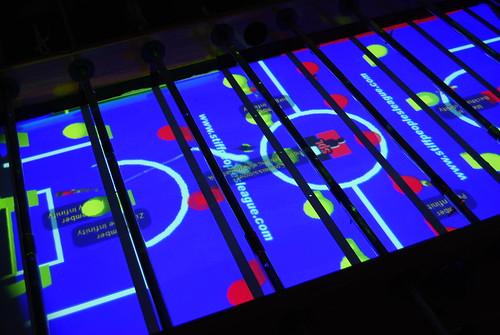
It's been said that
Life is just one damned thing after another (Elbert Hubbard, 1856 - 1915) and similarly for
history (another damned thing after another!) Some go even as far as suggesting that
It's not true that life is one damn thing after another; it is one damn thing over and over (Edna St. Vincent Millay, 1892 - 1950).
Either way,
provenance is the processing history of things. How one thing happened after another. Our DNA has a scrambled provenance record of how life evolved as the Great (really Awesome)
Tree of Life. It's important and difficult to unscramble it. Which is why it's called science (or
phylogenetics,
evolutionary biology, etc. in particular).
Recently I heard an exciting talk by Evan Eichler on
Human Genome Structural Variation, Disease and Evolution which, as I understand it, points to an evolutionary explanation of certain diseases:
Unscrambling the history of life and understanding details of the mechanisms driving and controlling evolution is a formidable task.
But there are also ways how history can be captured and recorded much more easily: Your usage of cell phones, credit cards, web browsing, email (and gmail in particular), doctor's visits,
FasTrak passes over the Bay Bridge, and many other things leave wonderful e-traces behind that are being integrated, data mined, or just kept lying around for future generations to marvel at what kept us busy in our days.
There are also inbetweens: processes not acting on the time-scales of eons (e.g. how dinosaurs related to birds), nor of the quick heart-beat of eBay transaction. More like at the speed of have a cup of tea made from your local tap water. You are what you eat (in German even nicer:
Man ist, was man isst) and what you drink. Turns some of what you drank is recorded in your hair:
Hair Reveals Where Murder Victims Drank Water. For the science of it see the Feb. 25 online Proceedings of the National Academy of Sciences (
Hydrogen and oxygen isotope ratios in human hair are related to geography).
 Val Plumwood, author of Being Prey, was found dead on March 1st, 2008. I read the story of her being (almost) prey due to a crocodile attack in The Best American Science & Nature Writing 2001, edited by E. O. Wilson (the crocodile incident, where she nearly fell prey, happened in 1985). The 2001 booklet has several other fascinating stories as well (not least, Wilson's introduction). Being prey is of course not normally how we think of ourselves... but it happens. Val calls the report on her near death experience (while being in a crocodile's death roll) a ...
Val Plumwood, author of Being Prey, was found dead on March 1st, 2008. I read the story of her being (almost) prey due to a crocodile attack in The Best American Science & Nature Writing 2001, edited by E. O. Wilson (the crocodile incident, where she nearly fell prey, happened in 1985). The 2001 booklet has several other fascinating stories as well (not least, Wilson's introduction). Being prey is of course not normally how we think of ourselves... but it happens. Val calls the report on her near death experience (while being in a crocodile's death roll) a ...



